For the inaugural “Women in Conservation Technology” programme, 15 female early career Kenyan conservationists were selected out of nearly 200 applicants to participate in our six-month training and empowerment course. Through two in-person workshops and four sessions of virtual programming, our participants received an immersive introduction to a wide range of key conservation technology tools, supplemented with mentoring from established female leaders in the Kenyan conservation technology field. During and after the program, we provided targeted technical and professional development support to aid participants as they applied the information learned to their ongoing conservation work.
Since our closing workshop in November 2022, we have seen these women deliver tangible conservation impacts. Training and seed funding provided by the Women in Conservation Technology programme helped our participants launch projects that apply a diversity of technologies to conservation challenges, ranging from the use of remote sensing data to monitoring endangered birds and invasive species to piloting novel underwater cameras for fish biodiversity assessment. Participants built on relationships with our instructors, forming collaborations which have inspired the creation of hackathons and Data Science Africa programming that will foster critical relationships technologists and conservationists.
In addition, we were able to showcase the value of creating space for women in this field in prominent public forums. Our cohort hosted two "Gender in Conservation Technology" discussions at the Earth Ranger User Conference this last year, in which panellists explored difficult questions about the value of women in this space. These sessions were among the most well-received and generated great interest in replicating this programme with new partners across Africa.
We are now turning our focus to empowering this cohort to continue along the path to achieve their conservation goals and objectives. The WILDLABS East Africa community provides an invaluable space where participants can connect and learn from global and regional communities to support the application of technology in current and future conservation projects. We look forward to providing a platform to uplift and support these women and others across the region, creating a strong and supportive community of women in the East African conservation technology community.
“I am grateful to you all that made this a reality,” one participant reflected. “I am confident, stronger and ardent believer of me and my space in the conservation world. “
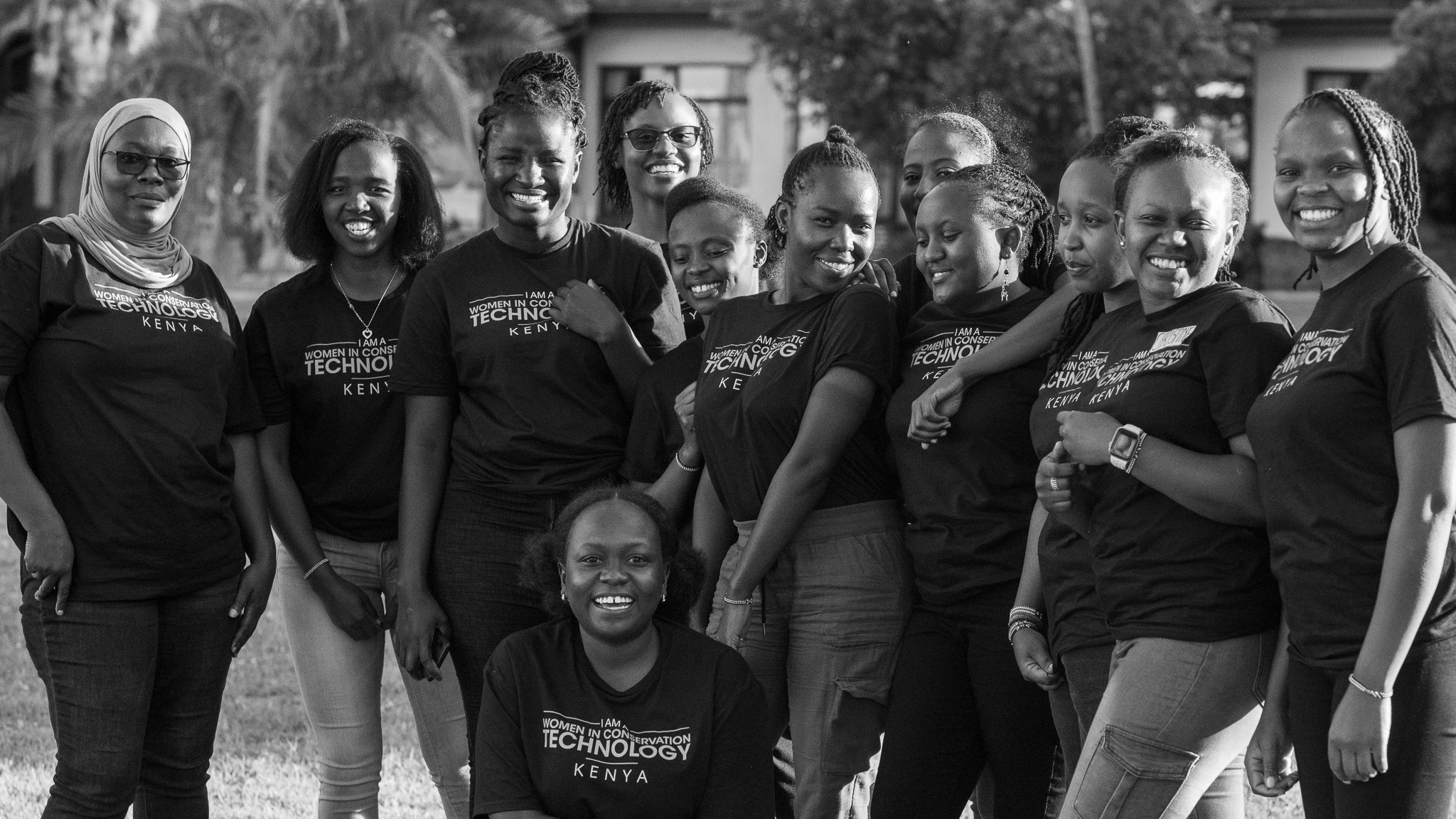
The Inspiration
The Women in Conservation Technology Programme was launched in 2022 with the overarching goal of supporting East African women in the field of conservation technology.
In Kenya, women are historically underrepresented in the conservation sector. While technology holds enormous potential to help conservationists better understand and mitigate critical environmental threats, the knowledge to employ these devices is not equally accessible. As part of our mission to empower underrepresented groups, this programme was developed to equip emerging female Kenyan conservationists with foundational knowledge in conservation technology, advance their potential for impactful conservation careers, and create a supportive network of women working in the conservation tech community across East Africa.
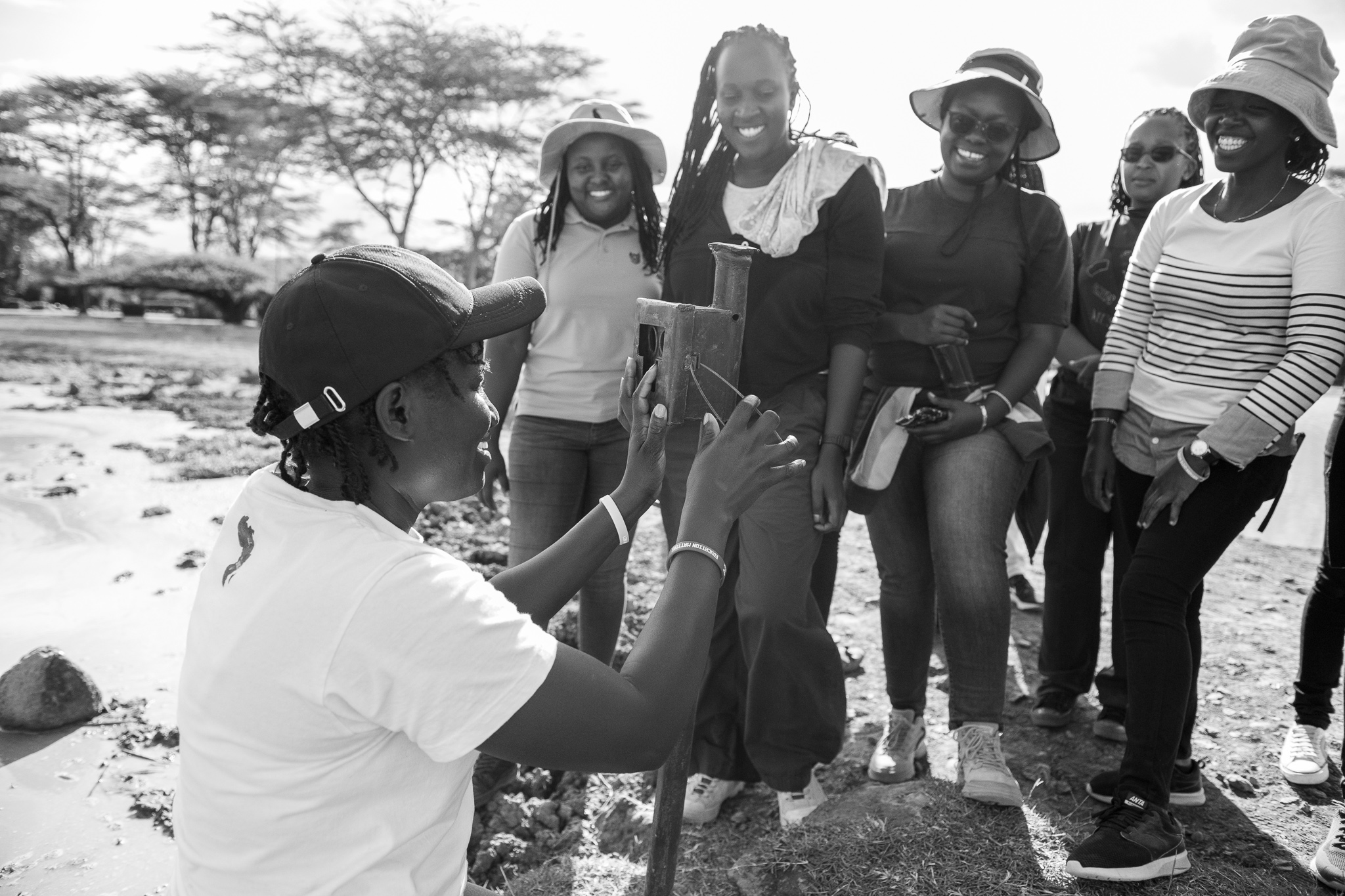
Our applications and pre-workshop survey responses revealed an overwhelming need for programming empowering Kenyan women in conservation technology. “I’m interested in exploring the technological innovation applications to solve current conservation challenges and provide critical information for decision making,” stated one participant, “This programme will empower me as a young woman in conservation by improving my technological skills and knowledge.” Another noted, “Women in science are known to be fewer than men. Intentionally creating this training programme for women in wildlife technology is very much encouraging, to see that someone has our back. Not only will this programme benefit me but also will act as a motivation for other young women and girls in the field and those who wish to join the field.”
The Cohort
Our first cohort of fifteen women, selected from a pool of almost 200 applicants, came from a broad spectrum of backgrounds: veterinarians, giraffe conservationists, guinea fowl research assistants, scat detection dog handlers, and marine biologists were only a few of the diverse career paths represented. Participants valued this mixture, underscoring “the recognition and support to women of different calibres with diverse careers” as a core strength of the program. Many participants aspired to use their conservation technology trainings to launch a graduate career or shape ongoing conservation practice in the protected areas where they work.

Candidates were selected not only for their dedication to conservation practice, but also on their desire to be part of and learn from a wider network of women in the conservation sector. “Seeing myself in the midst of other women in conservation was amazing for me,” stated a student at the conclusion of the programme. “I enjoyed the interaction, learning more from them and appreciating the work each one is doing.” The Women in Conservation programme offered a rare opportunity to interact with other women facing similar challenges and with similar goals, and our participants were encouraged to identify areas where they can support each other, learn, and grow together.
Immersive Technical Trainings
Our in-person workshops held at the Ol Pejeta Conservancy offered theoretical and hands-on technical training to equip future conservation leaders with foundational knowledge in conservation technology.
In the first workshop, expert trainers and facilitators provided an engaging introduction to conservation technologies. In the classroom, participants received detailed overviews on the application of current and emerging tools, such as acoustic monitoring, thermal imaging, and remote sensing, for wildlife monitoring, protection, and ecosystem management. Afternoons were spent in the field, where the women gained practical experience with these devices, setting up cameras, piloting drones, and tracking collared lions.
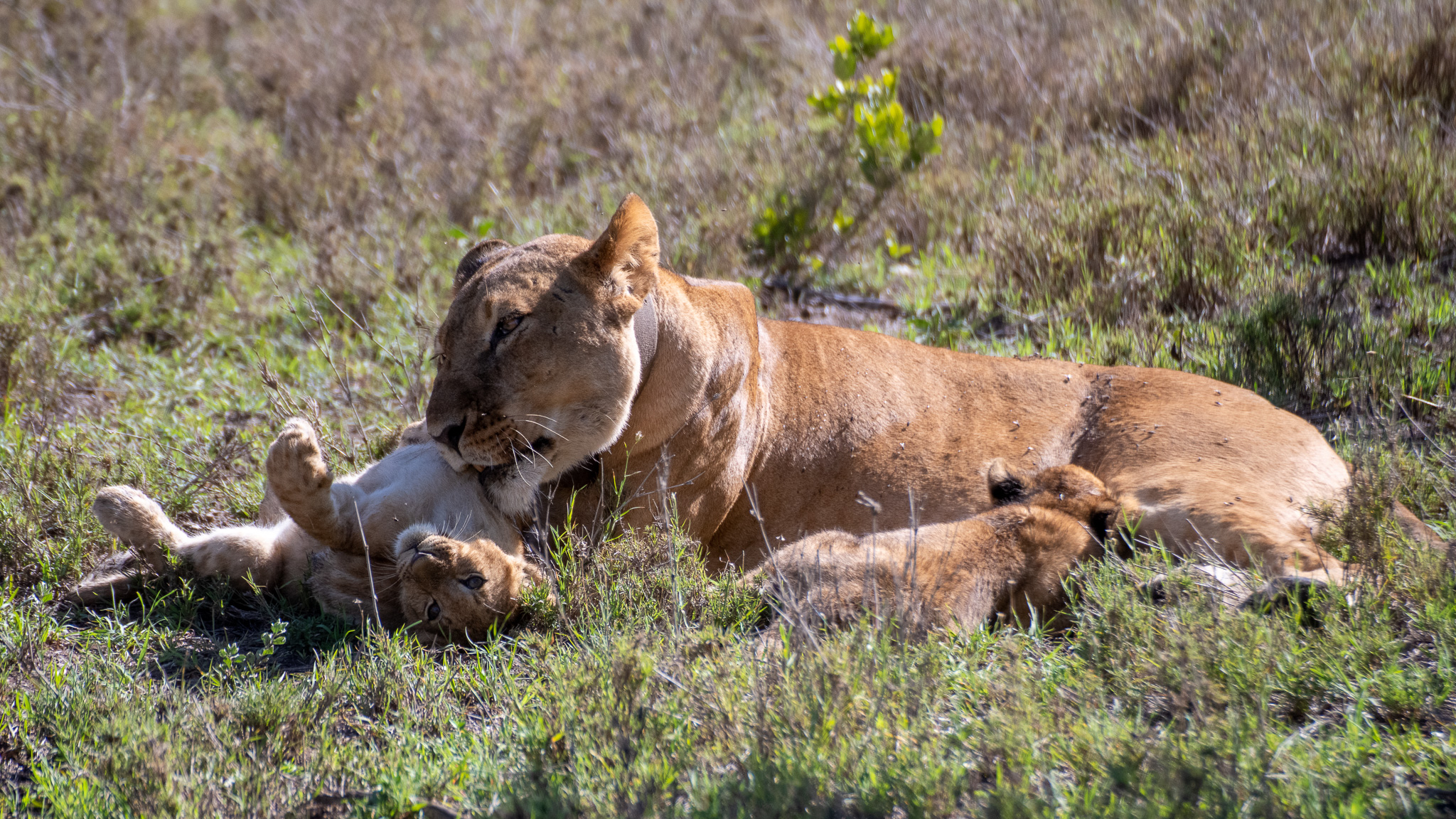 The second workshop focused more on advanced analytical training. An expert team from Data Science Africa led sessions on coding and data processing, and explored applications of open-source hardware to address conservation challenges. Representatives from the tech sector shared insights on pitching to and working with technology companies, and worked with the participants to develop proposals to move their own conservation technology projects to the next level.
The second workshop focused more on advanced analytical training. An expert team from Data Science Africa led sessions on coding and data processing, and explored applications of open-source hardware to address conservation challenges. Representatives from the tech sector shared insights on pitching to and working with technology companies, and worked with the participants to develop proposals to move their own conservation technology projects to the next level.
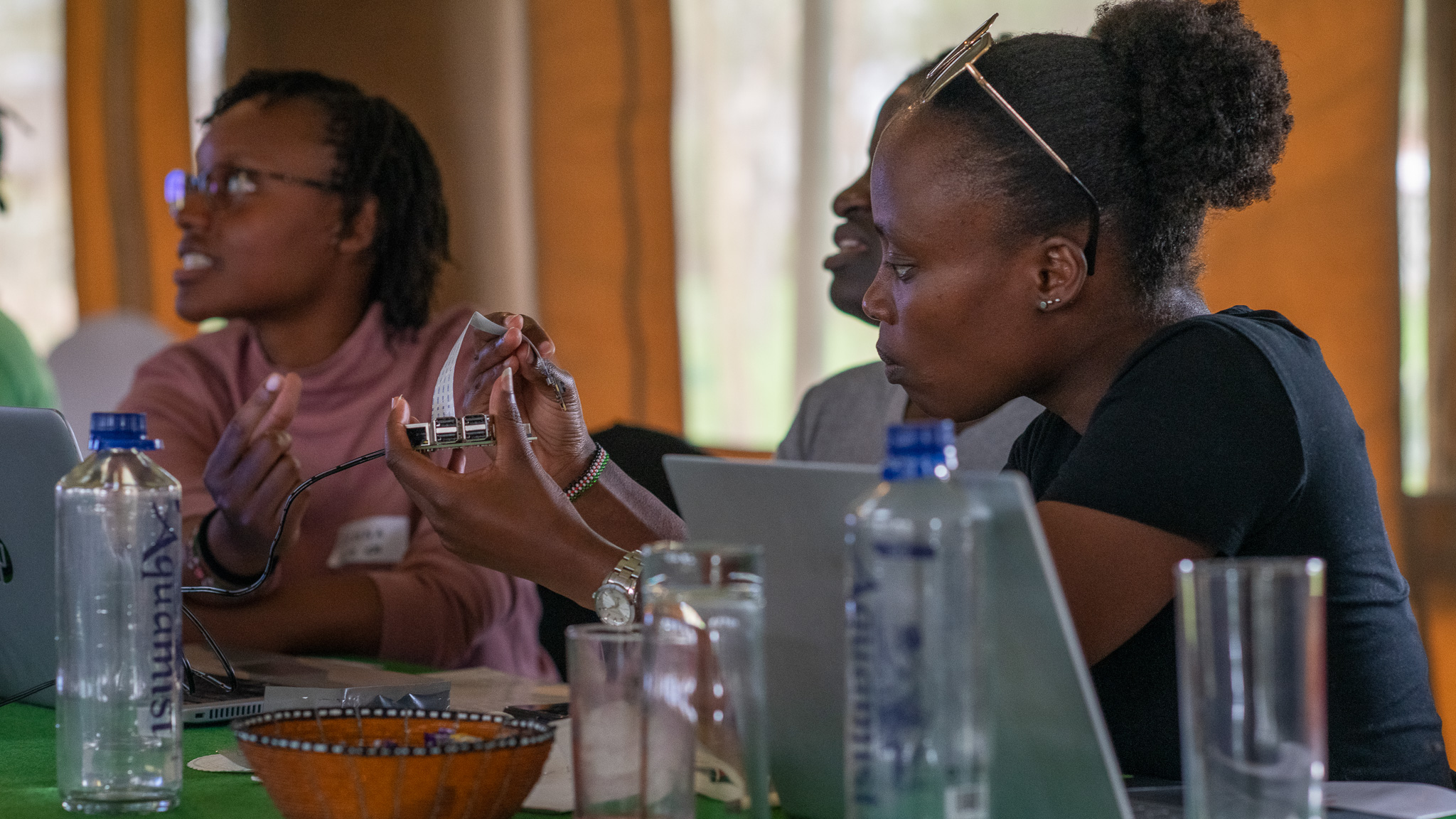
Between sessions, virtual programming was provided to further support the participants as they applied their new technical knowledge to their on-going conservation work. The content of these sessions was tailored to address the specific needs of our participants, and led by experts from the tech and conservation sectors. We also provided professional development support, including modules on research best practices, grant and proposal writing, and communicating to different audiences.
Overall, we aimed to cover relevant and timely topics that provided guidance on solving some of the most pressing conservation challenges in the country, including human-wildlife conflict, poaching, habitat degradation, and wildlife monitoring. “Each session played a role in my career growth and accomplishment,” a participant shared at the end of the programme. Many of these issues were common to the conservancies and protected areas in which the participants worked: equipping them with relevant tools and skills ultimately advanced their work as they return to their host institutions and projects.
Leadership and Empowerment
During both in-person events, intimate mentorship sessions explored the challenges and pathways to leadership as a woman in the Kenyan conservation sector. For this component, we were privileged to bring in female leaders form the Kenyan conservation technology, Lucy Waruingi and Angela Kabari. Lucy and Angela, who have almost three decades of combined conservation experience, shared their personal journeys as well as technical knowledge. They talked openly about the challenges they faced – and overcame – to succeed as a woman in conservation technology, including discussions of work-life balance, overcoming imposter syndrome, and making your voice heard.

These sessions were particularly impactful: “The fireside circle sessions were really enlightening in that the mentors allowed us a glimpse into their journey,” one participant shared. “It was intriguing that once they too had the butterflies and here they are! Mentors! So yes, I can do it too!”
During the entire six-month programme, we heard repeatedly that -- while the technical training was extremely beneficial -- participants most valued these safe spaces in which to grow, learn, and connect as Kenyan women navigating male-dominated disciplines. One participant shared that for her, the most powerful aspect was having “the room to be yourself and learn as authentically you. I have not had such a safe space before. The bonding of this WiCT programme has made long-term friends and collaborators out of us.”
The relationships formed during these sessions created a tightly knit network that our women can rely for support navigating the challenges that come with operating in this field. We aim to continue growing and fostering the self-confidence and capacity of these women to help them step into impactful conservation leadership roles.
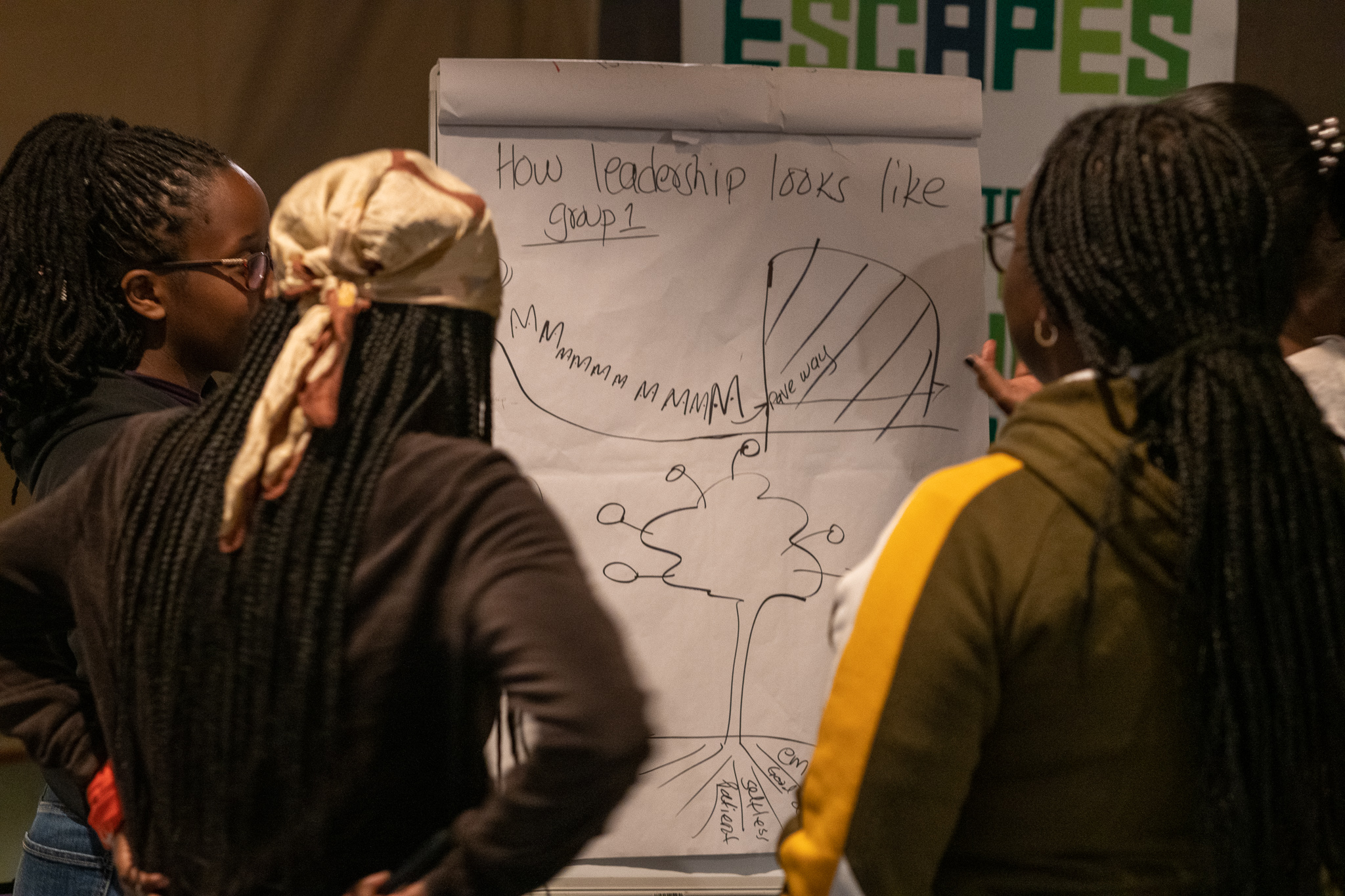
Real-World Impact
The impact this programme has had on our participants is already tangible. Already, we have seen our cohort engage meaningfully with the conservation and technology sectors, underscoring the value of women in these spaces while concurrently driving their own conservation impact.
This November, our cohort came together at the 2022 Earth Ranger User Conference (ERUC) to host sessions on the role of women in the conservation technology space. ERUC brought together hundreds of practitioners and technologists to learn about new applications of tech in wildlife conservation. The “Gender in Conservation” panels led by the Women in Conservation Technology participants provided a space for open and honest discussion about the challenges and opportunities presented for women operating in this field. The feedback from the Earth Ranger organizers and other participants was overwhelming. Multiple people expressed how the sessions impacted their thinking and focus on the subject, and we received numerous inquiries about hosting similar programming with organizations and in countries across Africa.
We also seen productive collaborations develop between members of our cohort and the technology sector to drive new innovations. Post-workshop engagement with the Data Science Africa team has not only led to the development of AI tools to support specific projects led by our participants, but also inspired the creation of a “bring your own data” hackathon that will be hosted at the Dedan Kimaathi University of Technology later this year. In the spirit of creating opportunities for women to excel in this field, this hackathon will be developed with support from the Gender Justice in STEM Research in Africa Initiative to make the programme more equitable for female participants.
Beyond these initiatives, our participants have been working to apply their new learnings in their own conservation work with government agencies, conservancies, and academic institutions across Kenya. All participants shared that the Women in Conservation Technology programme strongly influenced their confidence using these technologies and gave them the knowledge to work with their home organizations to implement systemic changes in conservation practice. “I really loved the monitoring techniques, especially after having collected data manually previously,” one participant shared. “With the knowledge that I acquired I am planning not only to use it for my own good but to pass it to my colleagues who could be facing the same challenge.”
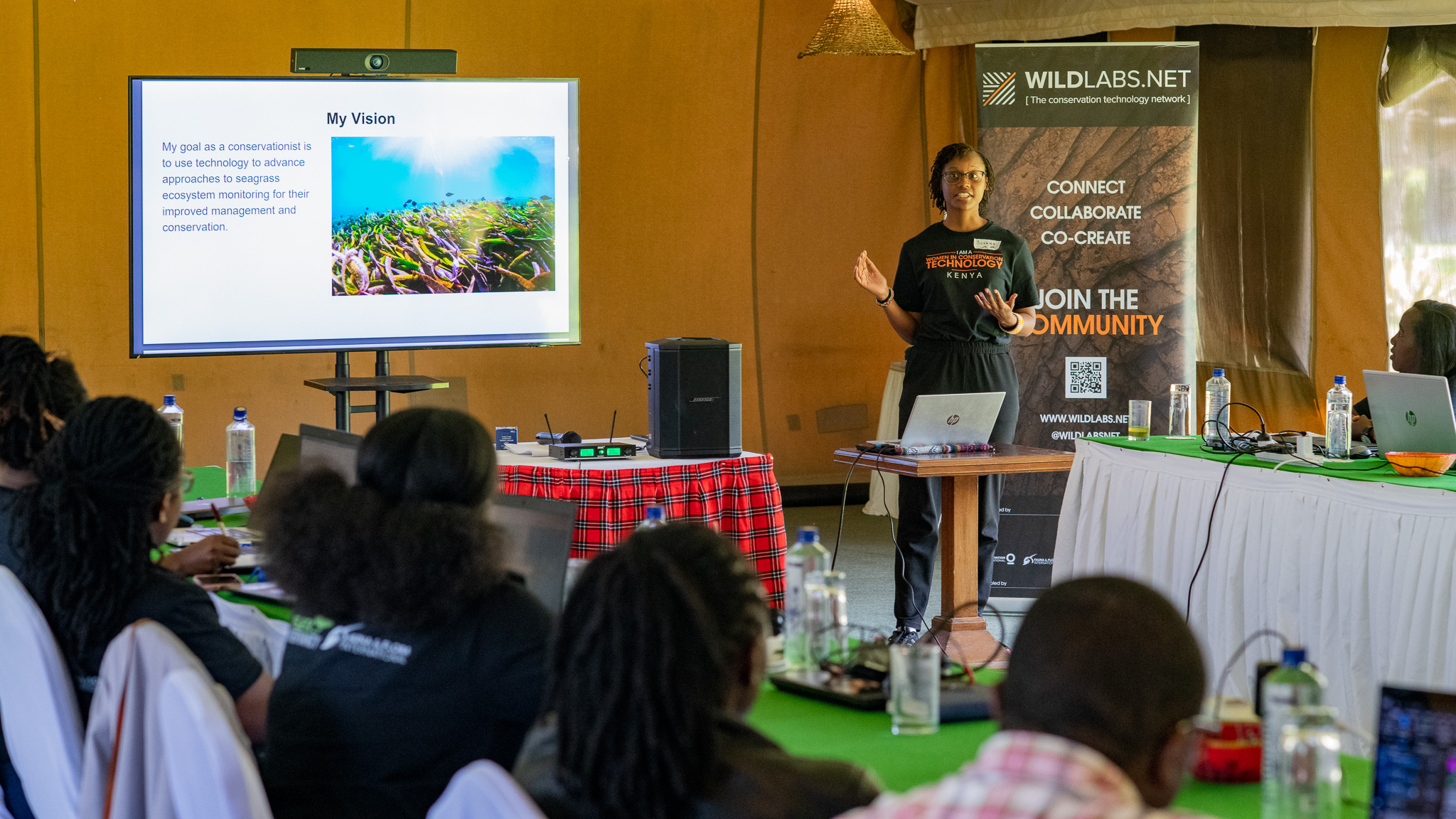 Boosted by support from a Women in Conservation Technology seed grant, offered with the support of our partners Arm, our participants are now working on projects ranging from applying remote sensing data to study land-use change, track endangered bird populations, and monitor endangered species, to piloting the use of novel underwater camera traps to monitor fish biodiversity. The cohort as a whole is working to use tech to protect species ranging from endangered primates to rhinoceros, engaging in participatory and citizen science, and having impact in diverse terrestrial and aquatic ecosystems. Several of these projects are forming the background of graduate theses: since the completion of the workshop, a number of our participants have been accepted to graduate programs where they will be using conservation tech tools are as a core component of their research.
Boosted by support from a Women in Conservation Technology seed grant, offered with the support of our partners Arm, our participants are now working on projects ranging from applying remote sensing data to study land-use change, track endangered bird populations, and monitor endangered species, to piloting the use of novel underwater camera traps to monitor fish biodiversity. The cohort as a whole is working to use tech to protect species ranging from endangered primates to rhinoceros, engaging in participatory and citizen science, and having impact in diverse terrestrial and aquatic ecosystems. Several of these projects are forming the background of graduate theses: since the completion of the workshop, a number of our participants have been accepted to graduate programs where they will be using conservation tech tools are as a core component of their research.
Looking to the Future
We had an overwhelmingly positive response at the end of the programme. One participant commented in the post-workshop evaluation, “my favorite thing … was the dynamism of the content and the diverse backgrounds that every individual speaker, mentor, and participant had.” The value of having a women’s only space to develop these skillsets and empower each other was clear throughout all our feedback. “Having [the mentors] really opened our eyes on gathering the important skills to manouvre through a male dominated space,” said another participant, noting the particular value of understanding how to “balance different roles in life as a woman to achieve personal and career goals”.

Our 15 participants have emerged as leaders in conservation, contributing to more effective and inclusive conservation in Kenya and beyond. The aim is for each group to stay connected through the global WILDLABS community and contribute to mentoring those that follow. In one participant’s words, “In the future, we can look at using our own first cohort as speakers and mentors. From these opportunities, other participants will get a chance to see how the program is impactful to those who take it seriously and positively.”
Join the next cohort of the Women in Conservation Tech Programme
This week, we're opening up applications for the next cohort of our Women in Conservation Tech Programme. In 2023, the programme will be hosted in Tanzania, in collaboration with the Grumeti Fund via Research and Innovation for the Serengeti Ecosystem (RISE), and founding partners WILDLABS and Fauna & Flora. This program will select ten early career Tanzanian women for a three-month training, including two in-person workshops and a conservation internship placement, focused on technological solutions to overcome pressing wildlife conservation challenges in Tanzania. All participants will be funded for in-country travel and on-site accommodation.
If you're considering applying for a future cohort of our programme, we'll leave you with some advice from our graduating cohort:
- “I would advise them to embrace technology and gain these important technology skills as it is needed in conservation, today's conservation world needs technology”
- “Just as the sky is big enough for all your dreams, the tech space is big enough for you! take time to explore what you want and need and you will find tech tools aligning with your purpose and goals”
- “Be open and ready to dive into a whole new and exciting world of conservation technology!”
To apply for the 2023 Women In Conservation Tech Programme: Tanzania, learn more here.

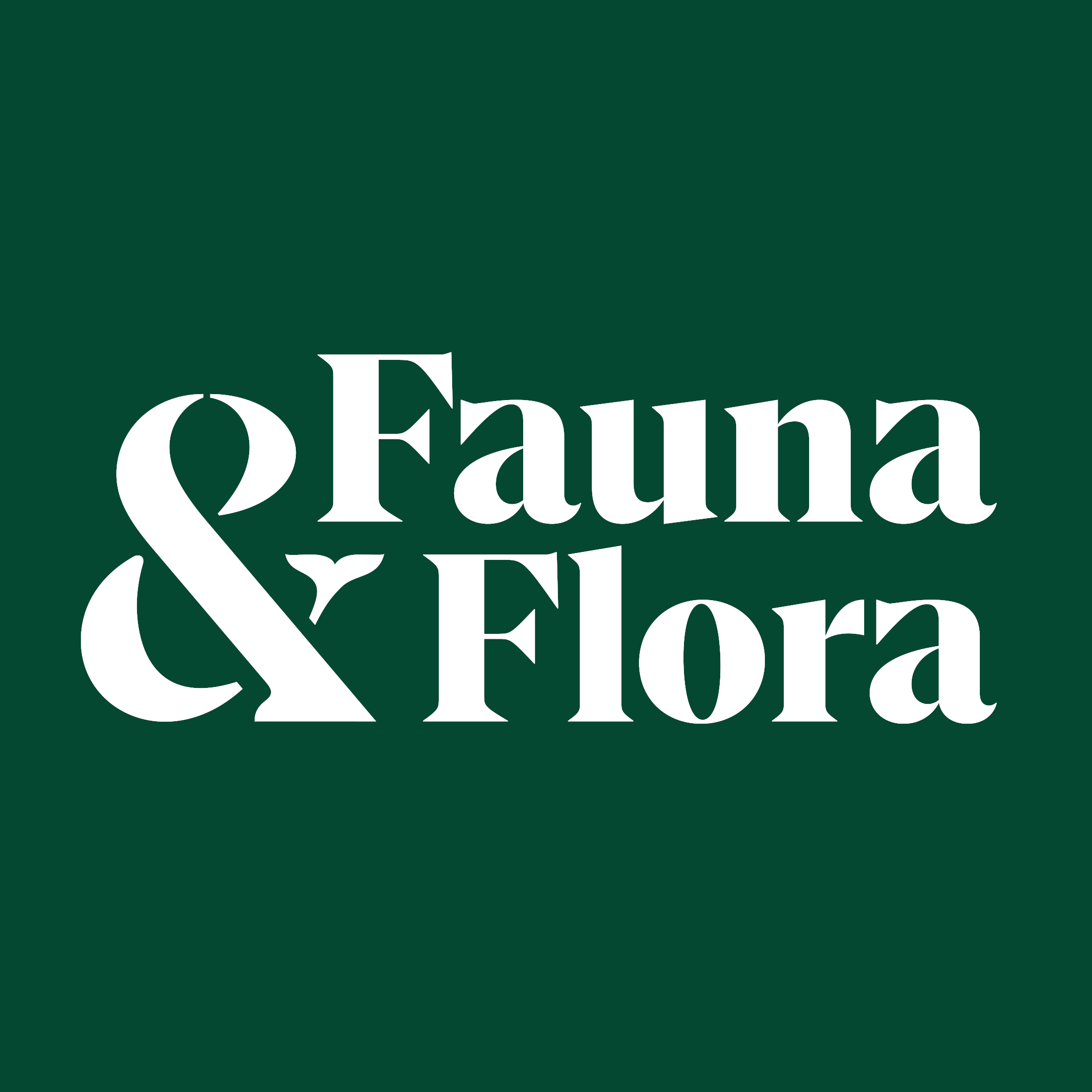
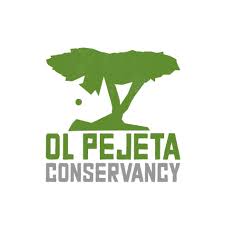

Add the first post in this thread.